Steam rises rapidly from the freshly prepared tajine of chicken, as the curtains sway in the breeze, sending scents of ginger and saffron my way. Seated around the table, we patiently wait as Wafae stands eagerly distributing bread between her two American guests, her husband who routinely closes the barbershop for lunch, and her three young boys. Everyone effortlessly tears off a small piece of bread, using it to scoop up their first bite of succulent chicken, mopping up its juices as they go. Every few moments, Wafae gently nudges food toward me on the communal platter and I gladly oblige my amiable host. This traditional meal shared with a warm, local family will prove to be the most memorable and delicious during my weeks spent on Moroccan soil.
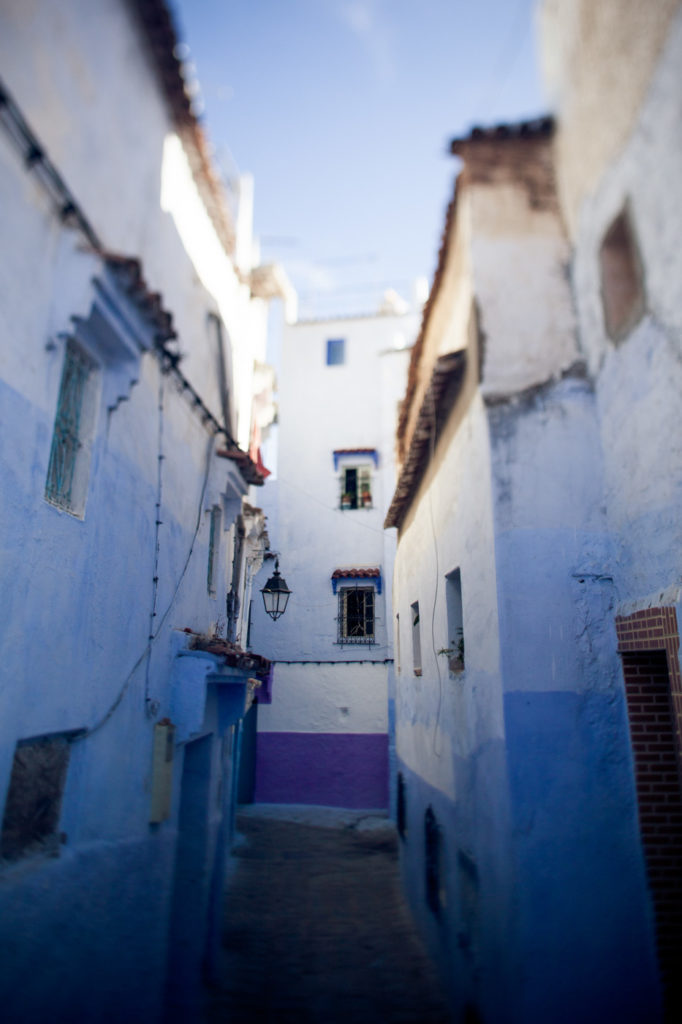
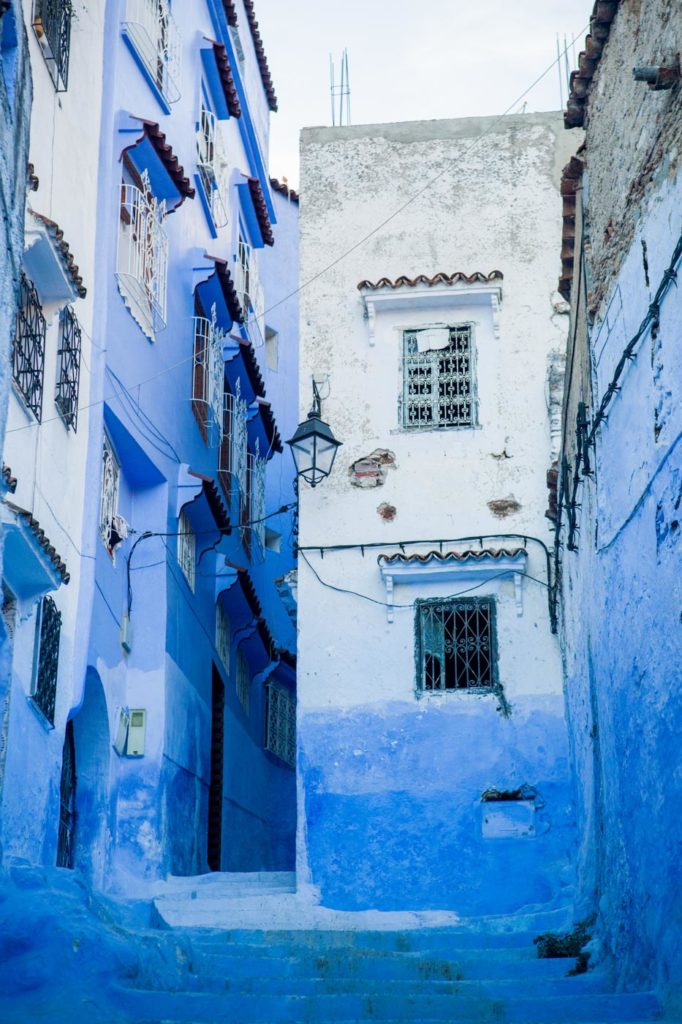
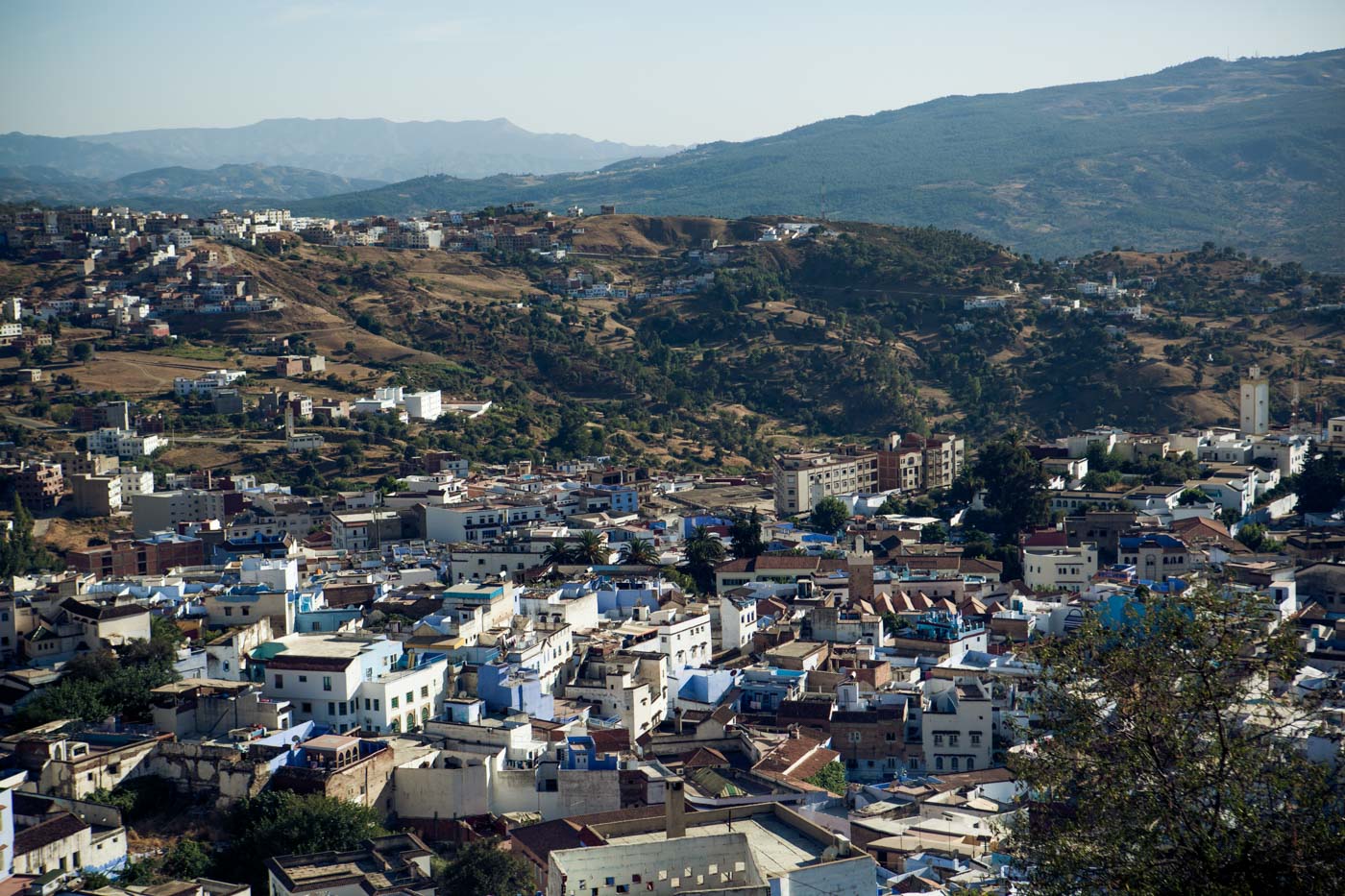
——
Our Grand Taxi comes to a screeching halt in the hillside village of Chefchaouen in the Rif Mountains of Morocco. This 15th century fortress city boasts a veritable plethora of blue and white-washed walls, red-tiled roofs, and cobblestone streets. After winding along labyrinthine walkways for an hour or so, I peer through a doorway into a baker’s cave-like lair. His cold, stoic stare sends chills down my spine as I linger at the threshold, bewitched by an amber glow emanating from the charred masonry oven behind him. Despite my uneasiness, I smile as warmly and innocently as possible in an attempt to break the ice, while my American friend addresses him in near-perfect Moroccan Arabic. He blinks slowly as if weighing his options, and reluctantly conceded, motions for us to come inside.
The modest bakery consists of a single room with a pile of branches filling one corner and weathered wooden shelves adorning the walls. Trays of green peppers and peanuts for roasting, sweets for baking, and several loaves of bread wrapped in colorfully patterned cloths litter the remaining floor space. Abdel Aziz Hamadi, a thin rail of a man, is stationed in a shallow pit along the far wall, positioning discs of dough in his wood-burning oven. It’s a warm August afternoon, and warmer still in front of the fire, yet Hamadi wears a heavy-knit cap and sweater without visibly breaking into a sweat. He move methodically, feeding the hungry flames a few oak branches and then transferring cooled loaves from the floured stone floor onto their respective trays.
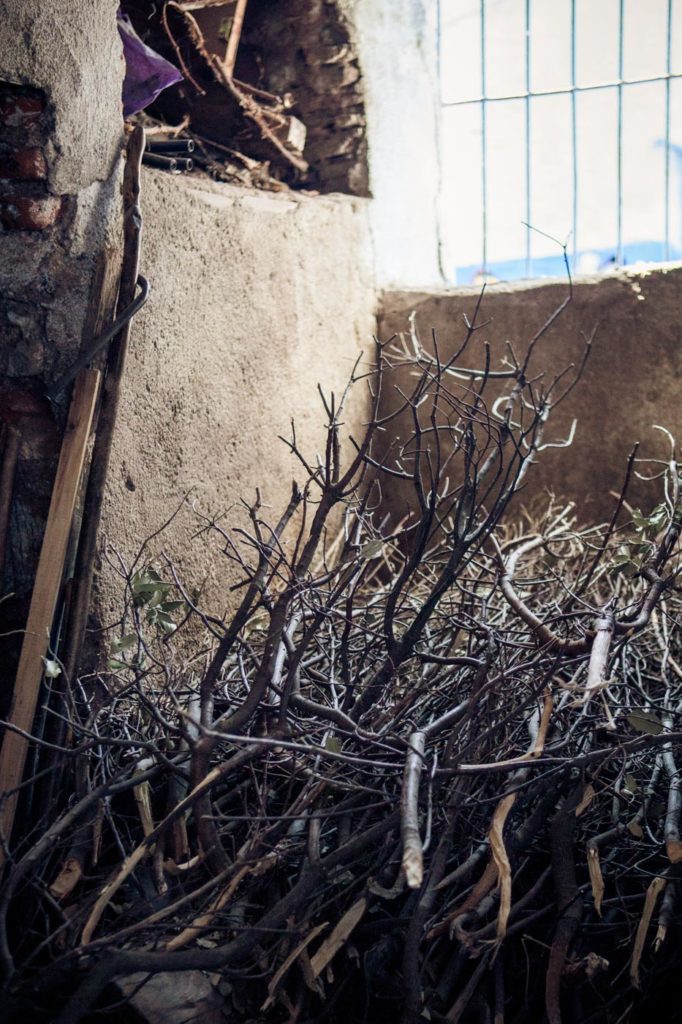
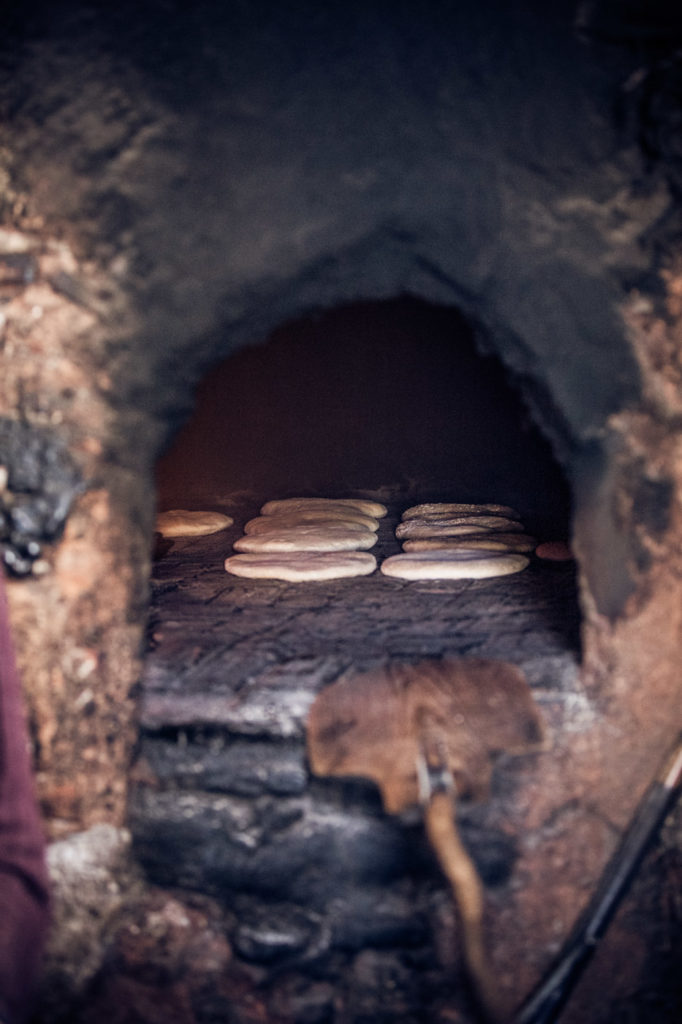

Every morning, wood harvested from the surrounding hills is bundled up and dropped at the bakery’s doorstep, ready for Hamadi’s daily start at nine o’clock. An hour later, women on their way to work and children heading to school begin to trickle in with their large wooden trays. Freshly prepared dough—carefully wrapped and often marked with a uniquely carved stamp for identification—is left in the skillful care of Hamadi and his oven. Charging just one dirham for four loaves, he bakes a dozen or so at a time, fully utilizing the space of the nearly five-foot in diameter, 450-year-old oven. As the workday winds down, the fire is slowed, bricks are cooled, and the oven temperature is lowered over the course of an hour to accommodate various dinner dishes and the Moroccan sweet tooth; there are countless cookies, cakes and treats begging to be baked to a golden perfection. In just one shift, Hamadi successfully serves upwards of 30 families in the immediate neighborhood.
In Moroccan culture, bread is considered nothing less than sacred. For many meals, it replaces the fork and knife, and is often divided evenly at the table prior to the meal so no one is left wanting. If even a morsel is dropped, it must be rescued immediately and kissed—and most critically, it is never to be thrown away. Day-old bread is often distributed to the poor, piled on rooftops for birds, and given to livestock as feed. Perhaps the only thing more important than bread itself is the significance of breaking it with another. To share a loaf of bread is to swear loyalty to and protection of that person, party or business. It’s ubiquitous, always freshly baked and available in nearly every nook and cranny of the country.
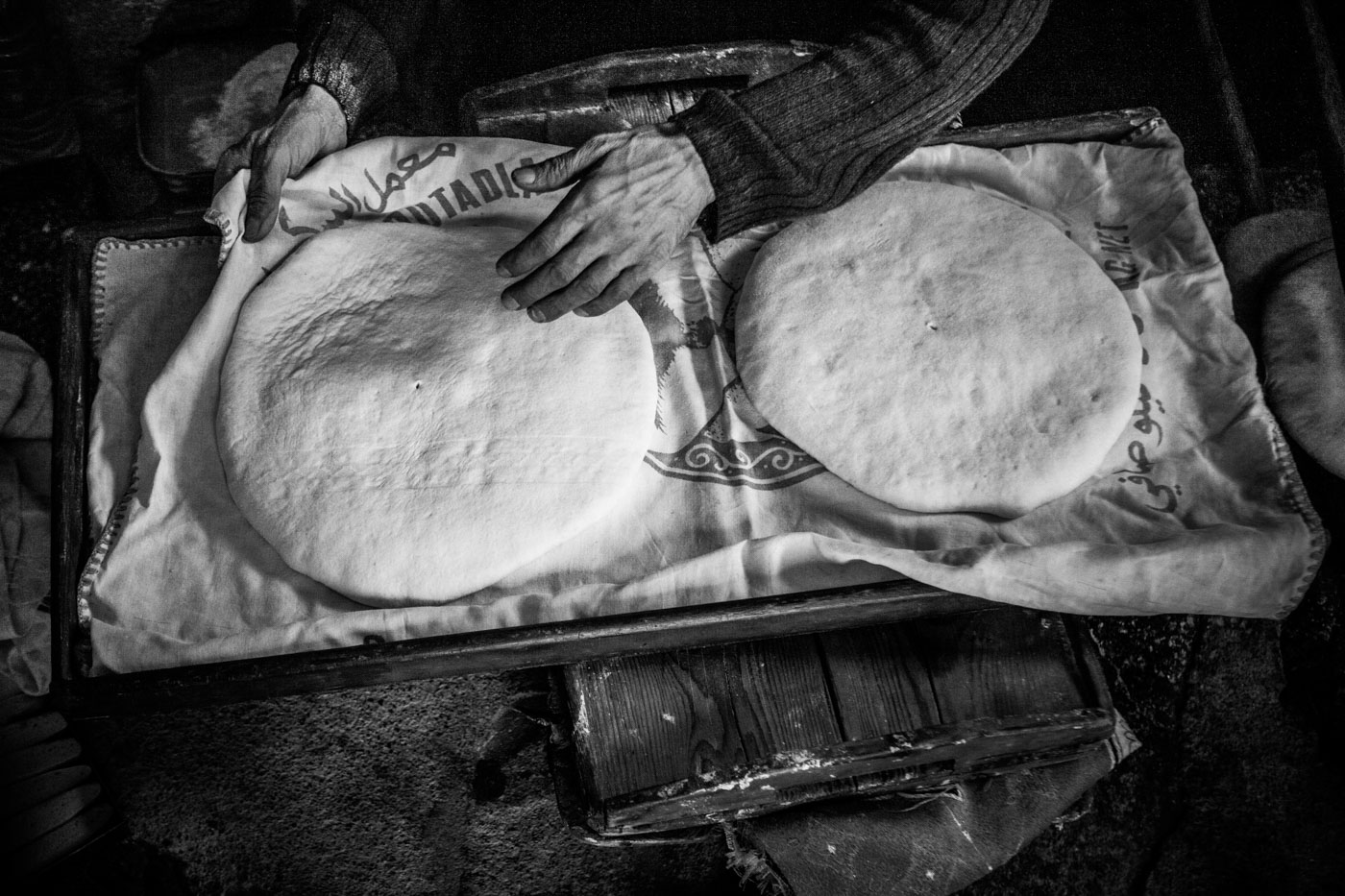
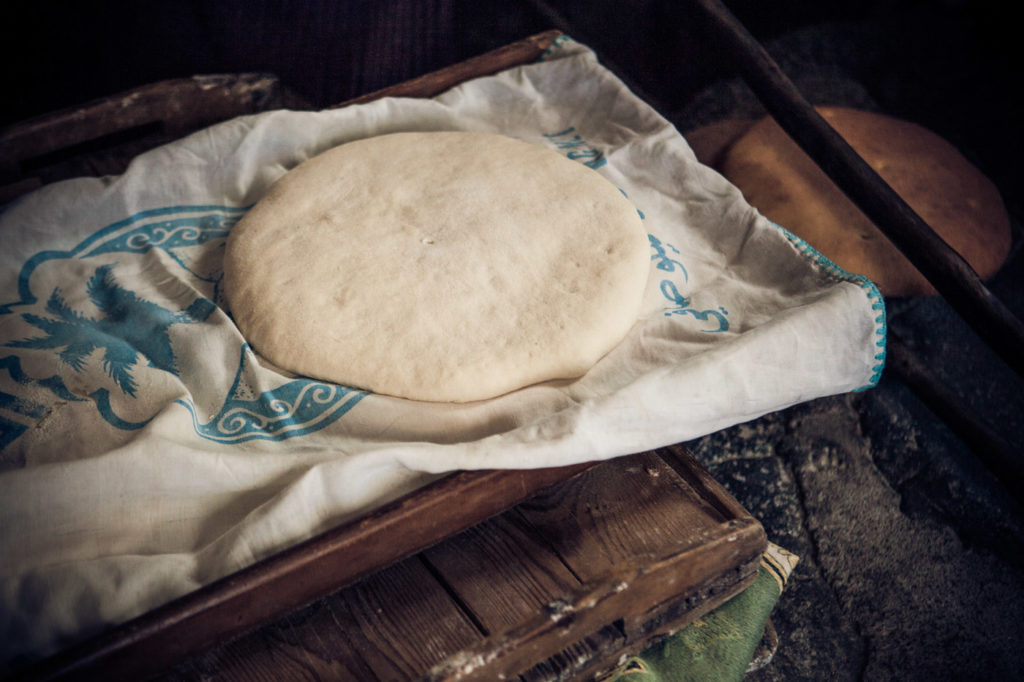
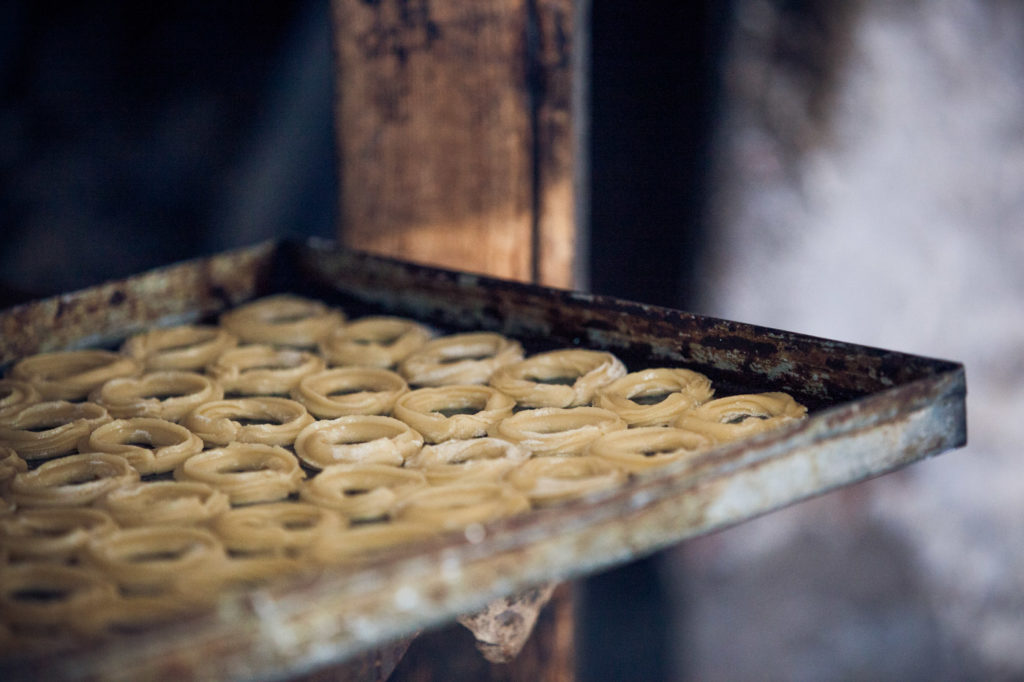
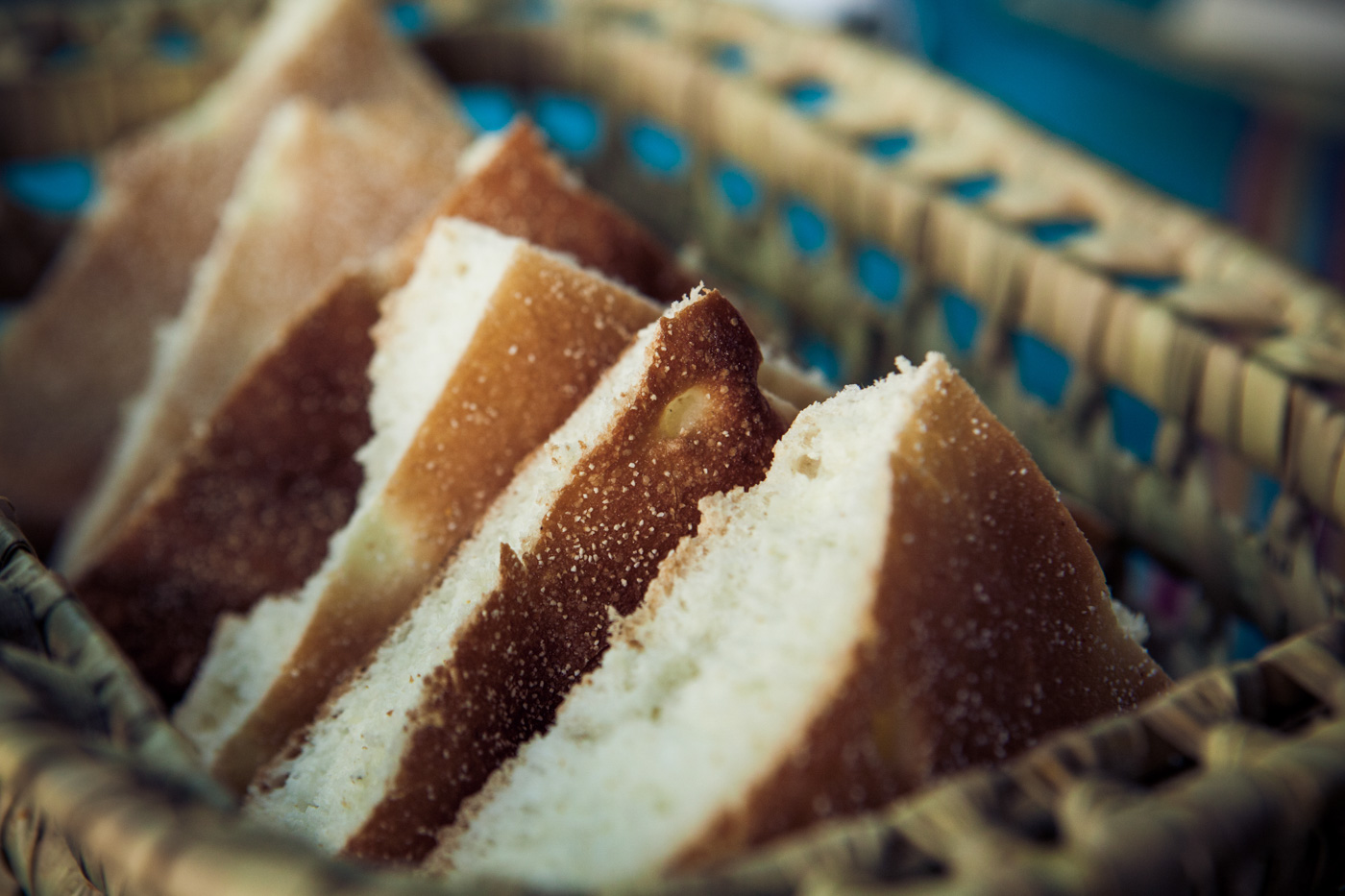
For 37 years, Hamadi has fulfilled his role as a cornerstone of his community. His bakery, The Rif Al Andalus Oven, is located in the heart of the Andalusian district of Chefchaouen’s old walled city. It is just one of six neighborhoods, all of which were built with the five foundational elements of ancient Mediterranean communities: a school, mosque, bathhouse, shared well, and public oven. Historically, these homes were not equipped with ovens since sharing the cost of wood was both economical and practical. The public oven was an integral part of society, participating in weddings and funerals alike with the baking of cakes and cookies to accompany these events. Even to this day, the baker’s oven serves as a great social equalizer, frequented by everyone from the working middle class to city officials. While the country is becoming increasingly more westernized, with updated plumbing and kitchen appliances, many still prefer the wood-fired flavors imparted by communal ovens.
Sixty minutes pass as we sit listening to Hamadi’s story, watching his countenance warm with every word. Women come and go, making their routine retrieval of freshly baked goods, several greeting us with puzzled grins. One elderly woman inquires as to our lounging on the floor, then simply smiles, kneels down beside us, and offers a generous portion of her daily sustenance. We were humbled by her kindness and the intimacy of the exchange, as she breaks bread with us in the truest sense.
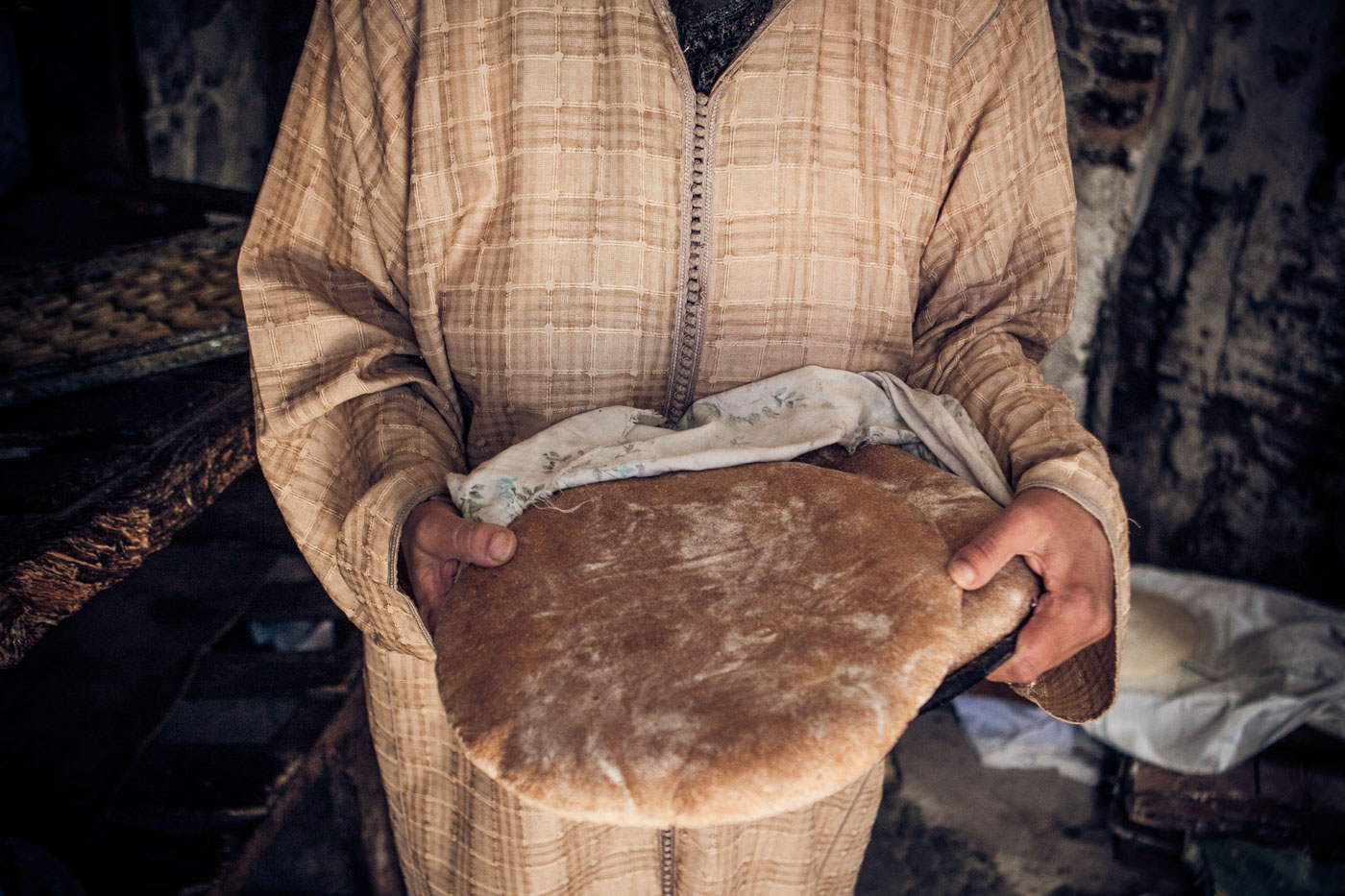





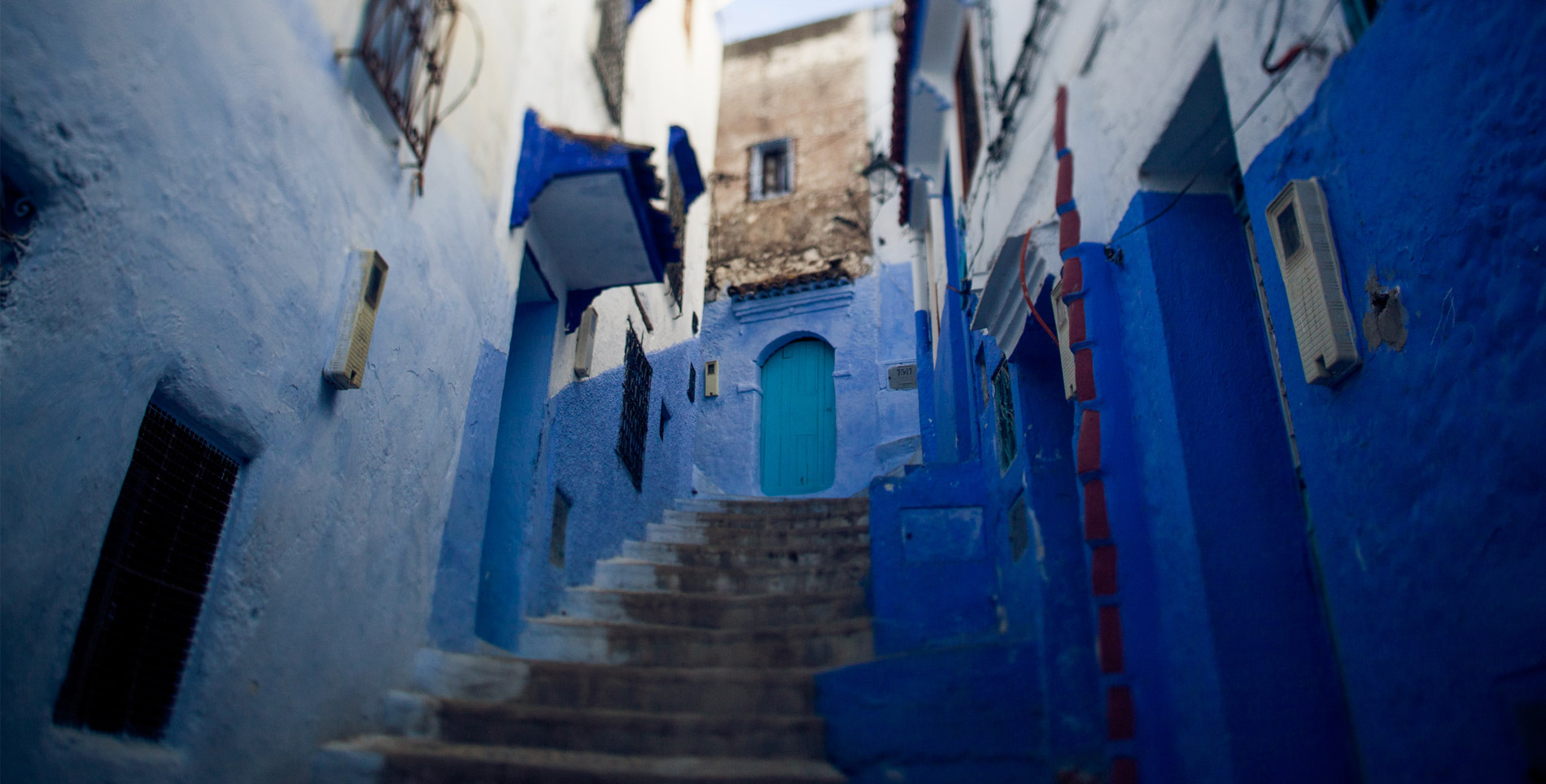

Our comments section is for members only.
Join today to gain exclusive access.